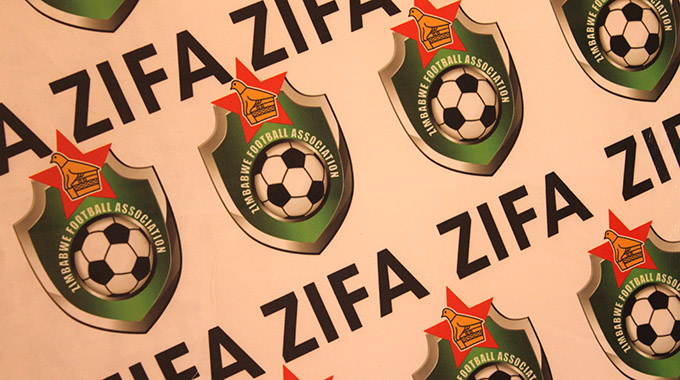EDITORIAL COMMENT: Lifting Zifa suspension should unlock goodwill

The Zimbabwe Football Association is now back in control of soccer in Zimbabwe following the general clean-up run by the football fraternity itself in late April followed by the confirmation of the courts that the Sports and Recreation Commission did have legal right to suspend Zifa executive members.
This resulted in Sports and Recreation Commission lifting the suspensions of the three suspended Zifa members still on the Zifa committee, allowing the full and Zifa committee appointed at the extraordinary general meeting to get back into the saddle and start fixing Zimbabwean soccer.
This in turn should allow Zimbabwe to return to international soccer through CAF for African events and Fifa for international events since the reforms were run by football, not by the commission or the Government. It should also unlock the funding that can be available.
Legal problems do arise in sport. Fifa itself saw in 2015 the arrest of a number of top soccer administrators and the resignation and arrest of then Fifa president Joseph “Sepp” Blatter on corruption allegations.
The International Olympics Committee has had its own troubles, in particular the award of the 2002 Winter Olympics to Salt Lake City where some members of the IOC were found to have received bribes.
All of these sort of problems within sport in the end had to be fixed by the sporting body or association, although there was a lot of pressure, and in the end this is what happened with Zifa with the appointment and then the confirmation of that appointment of Gift Banda as interim president.
He was the vice president of Zifa, but had never been suspected of any wrongdoing and so was not included in the original suspensions.
The SRC had been loath to intervene in Zifa, even as it became obvious that the Zifa executive did not have a grip on Zimbabwean soccer, had appeared to have made a very poor choice of a national coach and were watching Zimbabwean soccer go down the tube, while some pursued their own agendas.
What did cause action was just what caused action within Fifa ranks in 2015, the serious suspicion that there was criminal activity of corruption and money laundering.
Here it does not matter who you are, or how important you are. If you commit crimes of corruption the relevant national authority can take action, although we would hope the appropriate sports authority would take its own action earlier.
Several members of the Zifa board were accused of failure to account for public funds, bribery and sexual harassment of women referees.
These are all criminal offences and anyone committing them in either the public or private sectors can face criminal trials.
The SRC is still keeping in place a restructuring committee, which has also appointed auditors that will still be investigating and reporting. This committee does not run soccer, but does bring in a lot of stakeholders.
Its precise standing at present covers different powers and authority in different areas.
While Zifa is back in the saddle itself, but opinions can be given, there are a lot of other areas where Zifa does not have control.
For example, Zifa does not own any football grounds and only a minute fraction of the clubs, and none of the largest, own stadiums and grounds.
This is slightly odd in world football, where major English clubs for example own and built their stadiums.
But Zimbabwean stadiums and football grounds are owned by the Government, local authorities, major companies, mostly mining companies, that sponsor teams and even in the lower levels a number of sports clubs, although few run teams themselves.
Having accounts audited should not be a problem. The audit does not give an opinion on whether Zifa’s spending was wise or unwise, but is going into detail on what sort of accounts were kept, what the money was spent on so everyone in football finally knows, and whether there were any payments that seem to breach criminal law.
This should have been an automatic requirement within Zifa as it is within any entity that accesses public money.
It is desirable that sports associations run themselves, and the international sports federations are right to insist on this, but on the other hand regulators and police forces need to keep their eyes open to prevent criminal activity.
Sometimes there is a price, as Zimbabwe found when first cricket and then soccer were temporarily suspended from international competition, but both then saw some reform with extra pressure from their own membership for more. Cricket has been restored and now we should see soccer restored.
At the same time those who administer sport and sporting associations in Zimbabwe should recognise that those in the top posts are there to serve their sports, not themselves, and there is no automatic status and little reward except for a job superbly well done, with full accountability to the sporting community they represent.
There is a lot of potential sponsorship for some very popular sports, and soccer is the top sport in that regard.
But sponsors want to sponsor soccer, not individuals, and they want to be able to see the accounts and be assured that soccer is being run efficiently and properly. That sort of assurance will see sponsors coming forward.
The soccer fraternity needs to get back into control of the sport they love, and make sure that the best and most enthusiastic administrators are in the driver’s seat and they respect the rest of the fraternity and are willing to work flat out to improve and grow top-class soccer in Zimbabwe.











Comments